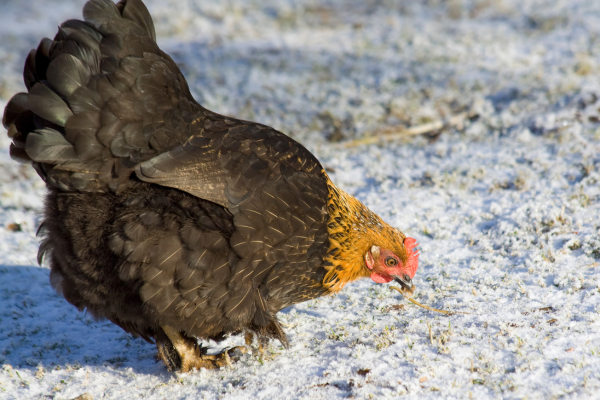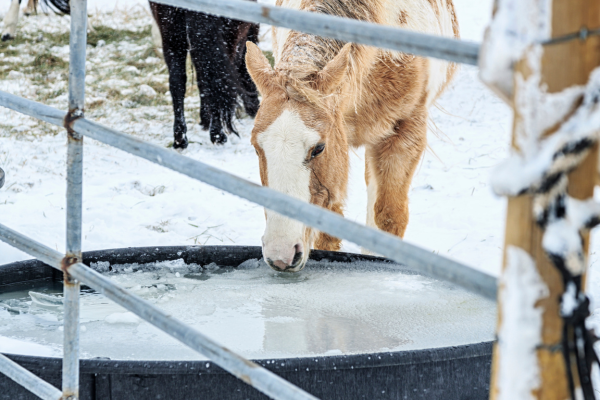15 Ways to Keep Animal Water from Freezing in the Winter
posted on
November 29, 2023

Ahh, winter is upon us. It is literally freezing outside. The snow and ice are coming in hot... well cold...
Either way, it's a bit nipple-y outside. Which means your animals' water is likely to freeze.
Keeping your animal's water from freezing in the winter is crucial for their well-being. Here are several ideas to help you prevent water freezing for your livestock:
- Heated Water Buckets or Tubs:
- Invest in heated water buckets or tubs designed specifically for livestock. These come with built-in heating elements to prevent freezing.
- Floating Deicers:
- Use floating tank deicers or submersible heaters to keep the water temperature above freezing. These devices are designed to float on the water surface and generate heat.
- Click here for our simple step by step tutorial to create your own floating deicers with a milk jug.
- Insulated Water Tanks:
- Insulate your water tanks or troughs to help retain heat. This can be done using foam insulation or by constructing insulated enclosures around the tanks.
- Electric Water Heater:
- Install electric water heaters in water troughs or tanks to maintain a constant temperature. Make sure they are designed for outdoor and livestock use.
- Thermal Water Jackets:
- Consider using thermal water jackets or blankets designed to wrap around water containers. These help to retain heat and prevent freezing.
- Solar-Powered Heaters:
- Explore solar-powered water heaters that harness energy from the sun to keep the water temperature above freezing. These are environmentally friendly and cost-effective.
- Heated Water Lines:
- Install heated water lines or use heat tape along water pipes to prevent freezing. This is especially important if you have a plumbing system for water delivery.
- Vibration Devices:
- Use vibration devices that can be placed in the water. These devices create motion, preventing the water from freezing. However, make sure they are safe for livestock.
- Salt or Additives:
- Add salt to the water to lower its freezing point. There are also commercial additives available that can be mixed with water to prevent freezing.
- Frequent Watering:
- Check water sources regularly and break any ice that forms. By maintaining a consistent water flow, you can minimize the chances of freezing.
- Geothermal Heat Sources:
- Utilize geothermal heat sources by burying water lines below the frost line. The Earth's natural heat can help keep the water from freezing.
- Windbreaks and Shelters:
- Provide windbreaks and shelters around water sources to reduce exposure to harsh winter winds, which can contribute to freezing.
- In-ground Water Tanks:
- Consider using in-ground water tanks, as the Earth's natural insulation can help prevent freezing.
- Use of Antifreeze Additives:
- Some livestock-safe antifreeze additives are available that can be added to water sources to prevent freezing. We use molasses on our farm for our ruminants only. We add a little to their water which helps to keep it from freezing and also entices them to stay hydrated.
- The Good Old Broomstick Handle Method: Yup... Just crush that top layer of ice with a broomstick handle.
Hey, listen... Sometimes you just gotta do what you gotta do.

Regardless, you'll want to regularly monitor water sources to ensure they remain ice-free, as maintaining access to fresh water is crucial for the health and well-being of livestock during winter.





